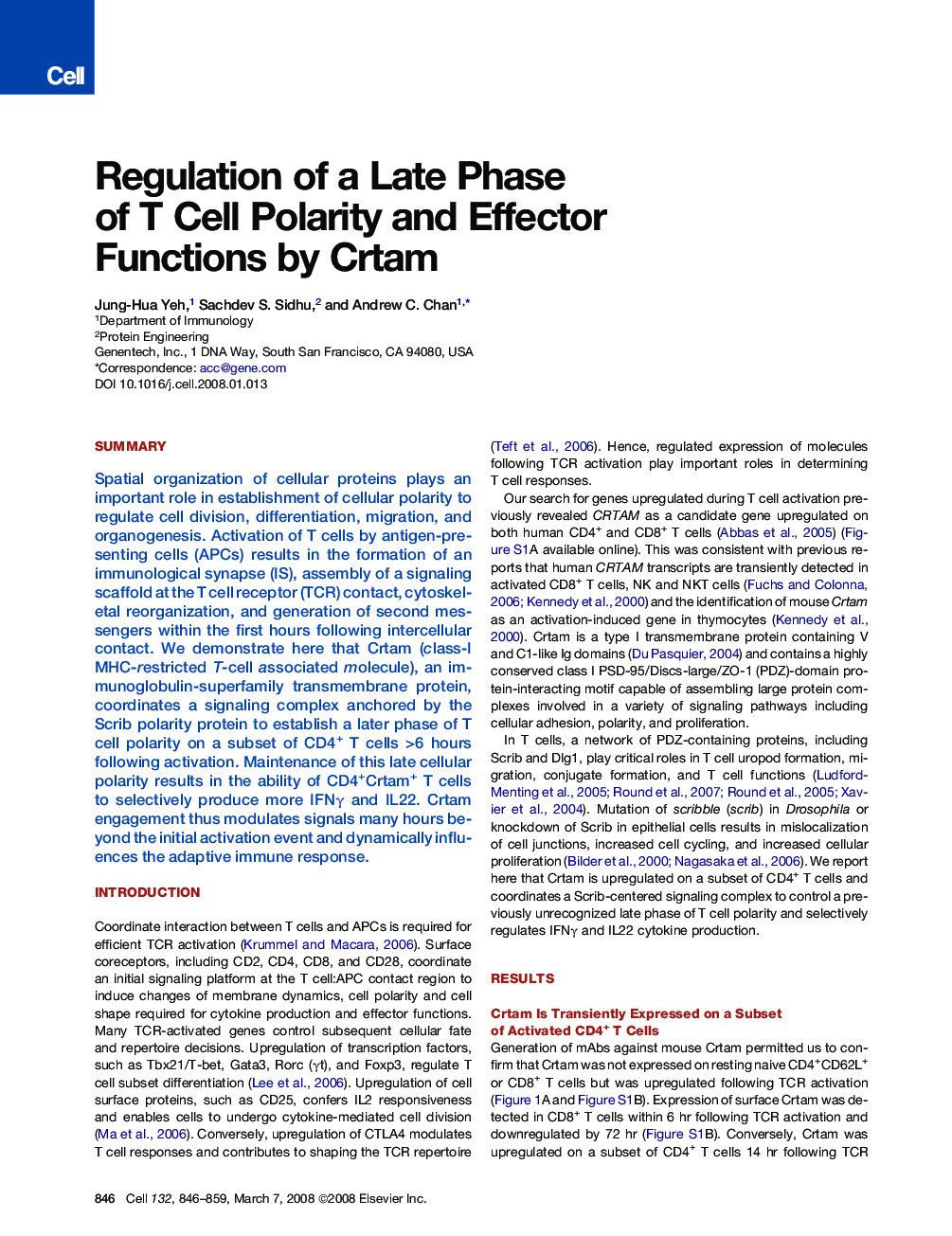| Article ID | Journal | Published Year | Pages | File Type |
|---|---|---|---|---|
| 2037637 | Cell | 2008 | 14 Pages |
SummarySpatial organization of cellular proteins plays an important role in establishment of cellular polarity to regulate cell division, differentiation, migration, and organogenesis. Activation of T cells by antigen-presenting cells (APCs) results in the formation of an immunological synapse (IS), assembly of a signaling scaffold at the T cell receptor (TCR) contact, cytoskeletal reorganization, and generation of second messengers within the first hours following intercellular contact. We demonstrate here that Crtam (class-I MHC-restricted T-cell associated molecule), an immunoglobulin-superfamily transmembrane protein, coordinates a signaling complex anchored by the Scrib polarity protein to establish a later phase of T cell polarity on a subset of CD4+ T cells >6 hours following activation. Maintenance of this late cellular polarity results in the ability of CD4+Crtam+ T cells to selectively produce more IFNγ and IL22. Crtam engagement thus modulates signals many hours beyond the initial activation event and dynamically influences the adaptive immune response.
